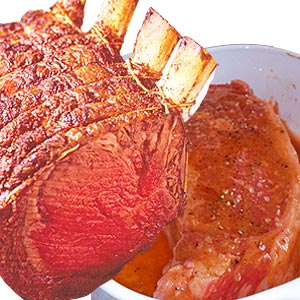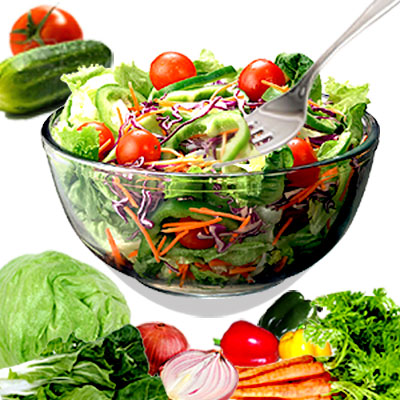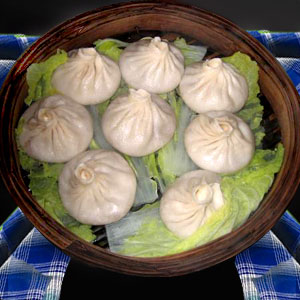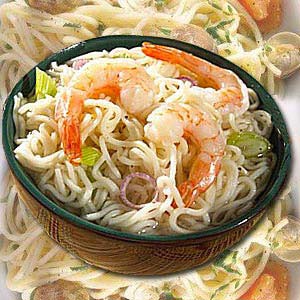Steak Marinade Recipe

Its summer and what better way to welcome the holiday season than great seasonal outdoor cooking - BBQ grilling. Buffets, pot lucks or picnics, it's officially grilling season! Marinating is a simple process that assures grilling success.
A good marinade is a must to make grilling moist, flavorful and healthier. When we use a marinade, we allow the flavors of food marry. A marinade can do many a thing - tenderize the meat or fish, Meat, penetrate the food and enhance the true flavor of the dish. The ancient technique offers health benefits too. Read more on how you can make your own marinade this summer!
Marinade - Beyond flavor
Just 30 minutes in the marinade can help the cause of your grilling meat. Here are reasons why marinades aren't limited to just tasty sauces, tenderness and flavor.
- Marinating meats imparts flavor, adds moisture and can tenderize meat.
- Marinades can help protect meat from drying out under intense flame, and add flavor to most bites.
- Marinades can even be used on some veggies, including eggplant, zucchini and artichoke.
- Marinades can be used on fruits when the process is called maceration.
- Marinating steak in beer or wine before cooking it dramatically reduces levels of chemicals that can cause cancer. Marinating steak in red wine or beer for six hours before frying can cut levels of two types of HA heterocyclic amines which can cause cancerous tumors, by up to 90 percent.
- Researchers believe that marinade reduces harmful heterocyclic amines (HAs) by acting as a barrier and preventing water-soluble molecules from moving to the surface of the meat.
- Common barbecue marinades like herbs and spices are good sources of antioxidants. Foods rich in antioxidants play an essential role in preventing cardiovascular diseases, cancers, neuro degenerative diseases like Alzheimer's and Parkinson's, inflammation and problems associated with aging.
Components of marinade
A marinade has three basic ingredients - oils, acids and seasonings. Each has a specific function.
Oil: Oil when used in marinades tenderizes the food by softening it. Oils can also add flavor depending on its base. Examples: Walnut oil, olive oil, sesame oil, sage oil, lemon basil oil, peanut oil.
Acids: Acidic base tenderizes meat, softens the surface and allows flavors to be absorbed. Examples: Citrus fruit juices, different varieties of vinegar such as white vinegar, rice vinegar and balsamic vinegar, wines, sherry, yoghurt, buttermilk and tamarind spices.
Seasonings: Seasoning gives the final impact on marinades. There are different types of seasoning; it's the type of food that should decide the seasoning to be used. Examples: citrus peel, soy sauce, mustard, salt and pepper, herbs, spices and a wide assortment of other ingredients.
Salt is another important ingredient in marinades which extends multiple effects. It tenderizes meat, makes it juicier and helps to increase absorption of flavors from herbs and spices.
Homemade ginger and garlic paste is an important ingredient in many Asian recipes including grilled foods. Spices such as minced garlic, peppers, cinnamon, are added for flavoring, they do not play any role in breaking down the collagens. Acids and salt control the growth of unwanted bacteria, subsequent cooking kills the remaining bacteria.
With the three basic ingredients, namely oil, acid and seasoning you can prepare any of the following marinade type.
- Oil and acid marinades
- Oil and aromatic marinades
- Acid and aromatic marinades
- Dry marinades and rubs.
Marinades aren't always liquid mixtures. Even rubs, a mixture of dry ingredients, such as herbs and spices make for marinades. Rubs are rubbed onto the surface of the food, usually refrigerated for a minimum of 30 minutes and then grilled or fried. It is a fastest way to add flavor to meat and fish before grilling, especially when there's no time for wet marinades.
The ratio: The recommended marinade to meat ratio is 8 tablespoons of marinade per pound of meat or ½ cup of marinade per pound of meat. A little more will not do any harm. But there isn't any oil: acid: seasoning ratio, the same should be determined depending on the intended use. Here are few options as suggested by popular culinary experts. Adjust ratio to suit personal preference.
- The marinade should completely cover the food.
- The consistency of liquid marinades ought to be thin enough to penetrate the meat.
- Keep it an equal ratio so the oil bonds with the citric acid and ensures it all breaks down.
- Oil: acid in a 3:1 ratio or 2:1 also works well.
- Proportions of acid to oil for salad dressings and marinades are 1/3 acid to 2/3 oil.
- Red meat marinades do not require oil since the meat contains enough fat.
Knowing the basics helps you get started. Use it as a guideline and go beyond the basics and create signature marinades.
Timing: In order to allow the marinades penetrate as deeply as possible into the meat, you need to wait for some time. Marinating times vary depending on the type, cut, and size of the meat (beef, chicken, and pork), vegetables, fishes and shellfish. But, if you go beyond recommended timing, it can result in recipes getting mushy. Generally, marinades that contain no salt, acid or alcohol can be used overnight, or in some cases, longer. On the other hand, the more acidic the marinade, the less time needed.
Vegetables do not need to be marinated for long. A minimum of ½ hour would do. Here is approximate marinating time for poultry, seafood, fish and meat (lamb, beef and pork).
Poultry: Chicken breasts, boneless, skinless chicken thighs, boneless, skinless duck breasts etc. - one to three hours.
Seafood: Shrimp - 30 minutes, scallops - 5 minutes.
Fish: steaks and fillets - 15-30 minutes.
Meat: Bird meat - ½ hour to three hours.
Lamb, beef and pork (steaks and chops cuts) - 2 to 4 hours
Beef, flank and steak - 2 hours to overnight
Whole roast - 4 to 6 hours (or overnight)
Brisket - 24 hours
Turn the meat every few hours. Smaller pieces marinate faster. Consider cutting some meats into serving sizes. Always marinate in the refrigerator. Never marinate at room temperature or outdoors as bacteria can quickly multiply on raw meat if it is warm.
Containers to mix marinade
A non-reactive container is the safest choice. Aluminum, copper and cast iron tend to react with the acids in marinades and impart bitterness. Choose between a glass, stainless steel, ceramic, porcelain or clay container. Even re-sealable plastic bag or a sealable plastic container, a zip-top plastic food bags can be used. The bag can be turned over to distribute the marinade well. Always keep the container closed and refrigerated.
Marinade recipes
The best marinade recipes are often the simplest, made with fresh, quality ingredients that just taste really good together. Steak marinade, chicken marinade, beef marinade or pork loin marinade, the basics are always the same.
Steak marinade recipe
Pineapple juice ½ cup
Brown sugar 1 tbsp
Red wine vinegar ½ cup
Worcestershire sauce 2 tsp
Soy sauce 1 tbsp
Clove, garlic 1 no
Garlic salt 1 tsp
Water ¼ cup
Olive oil 1 tbsp
Crush clove and garlic. Prick steak with fork. Mix all ingredients and prepare the marinade. Pour over steak. Cover and refrigerate for 2 hours. Turn steaks after 2 hours and refrigerate for 2 more hours.
Maintain a minimum of 3 hours of marinating time. Baste steak with marinade when broiling. Serve hot with vinegar. Alternatively use white wine vinegar in place of red wine vinegar which equally gives the tangy taste.
Beef marinade
Too much of garlic in beef/steak can amount to sacrificing natural beef flavor. Red wine works best in beef marinades. Fresh lime juice and beef are a great combination. Choose low fat cuts or tough steak cuts like sirloin, flat iron, flank steak, hanger and round steaks for marinating. Do not let beef soaked in marinades for more than 24 hours as the meat will go mushy.
Flank steak marinade recipe
Flank steak 1 ½ lb
Brown sugar 2 tbsp
Olive oil 2 tbsp
Garlic 2 cloves (minced)
Lemon juice 2 tbsp
Onion 1 tbsp. (minced)
Black pepper ½ tsp
Soy sauce ½ cup
Ground ginger 1 tsp
Make ¼ inch deep knife cuts, here and there, on the surface of the steak across the grain of the meat. Prepare marinade. Combine brown sugar, soy sauce, olive oil, garlic, ginger, lemon juice and pepper. Coat the steak generously with the marinade. Refrigerate for at least 6 hours or even overnight.
Preheat the grill for high heat and lightly oil it with olive oil. Take out the refrigerated steak. Place the steak on the hot grill for a minimum of 8 minutes on each side. Remember to turn the steak so as to obtain the grill marks. Remove from the grill and place on cutting board. Make thin slices and serve.
Chicken marinade
Following certain do's and don'ts can add that extra flavor to your meat. Remove the layers of fat before applying marinades. But, if you are baking a whole chicken, keep the skin on to avoid drying out the meat. When applying chicken marinades, do not fork poultry meat prior to marinating. The holes thus created due to forking allow the marinade juices to flow out of the meat.
As regards seasonings for chicken marinades, use bold seasonings like grated lemon peel, minced hot peppers, fresh herbs even infused vinegar so as to add flavor to chicken dishes without adding fat. To make healthy chicken marinades, use seasoned fruit juice or chicken broth instead of oil-based marinades before grilling or broiling. Steak marinades can double up as chicken marinades.
Chicken marinade recipe
Chicken breasts 2 to 4
Yogurt 1 can
Garlic 1 clove (minced)
Dry ginger 1 tsp
Chili powder 1 tsp
Salt 2 tsp
Mix ingredients well and place in a zip lock bag. Add 2 - 4 chicken breasts, either cut in half into cutlets, or pounded flat between two sheets of plastic wrap. Marinate for 1 hour in the refrigerator. Grill or barbecue chicken.
Pork marinade
The cut of the pork largely influences the time for marinades to work. Tougher cuts require extra time as compared to tender cuts of pork. Celebrity chefs recommend about ¼ cup of marinade per pound of pork.
Pork Roast marinade recipe
Pork chops 4 no (1-2 inch thick)
Distilled vinegar 2 cups
Green onions ½ cup
Dry ginger 1 tbsp
Soy sauce 2 tbsp
Sesame oil 2 tbsp
Garlic 2 cloves
Salt 3 tsp
Slice the green onions and crush get the garlic minced. Combine all ingredients. Marinate in refrigerator for 2 hours or above. Grill chops over indirect heat in covered grill for 10 minutes. Turn sides after 5 minutes. Sprinkle green onions and serve.
Shrimp marinade
Marinated grilled shrimp is a quick, easy and healthy meal that you can prepare all year around. Shrimps require to be marinated for at least an hour to let the flavors come together. The less oil you use, the more flavorful. For an outstanding shrimp marinade recipe, buy large or extra large size shrimps (fresh or frozen shell on shrimp) as these are best for grilling. Bigger the size, better the flavor and texture. Devein shrimps, clean and refrigerate till the shrimp marinade is ready.
Shrimp marinade recipe
Shrimp 1 large bowl
Soy sauce 1/ 2 cup
Worcestershire sauce 1 tbsp
Lime juice 1/4 cup
Fresh parsley 2 tbsp
Dry mustard 1 tbsp
Garlic powder 2 tbsp
Salt 2 tsp
Mix marinade in shallow bowl, add shrimp, cover, refrigerate for one hour, turning occasionally. Set grill on high heat. Skewer the shrimp and pot it on a well oiled (or buttered) grill for about three minutes per side or until the shrimp is pink and opaque. Shrimp cooks very quickly. To add extra flavor, toss in a mixture of garlic, herbs, lemon zest, cayenne etc after cooking. Serve immediately.
Salmon marinade
Grilling, roasting, baking, poaching or frying, salmon marinade will add more depth and flavor to the already tasty seafood.
Salmon marinade recipe
Salmon fillets 1 ½ lb
Soy sauce ¼ cup
Regular sugar 2 tbsp
Green onions 3 tbsp (minced)
Mix all ingredients except salmon. Marinate the fish in the marinade for at least 1 hour. Grill the fillets for 6 minutes approximately on each side or till the fish becomes flaky. Brush with the leftover marinade in between.
Chicken fajita marinade recipe
Fajita is a term for marinated grilled meats that are served in warm flour tortillas. Fajitas come in two different styles: chicken or steak. The chicken is arguably the easier of the two to prepare.
4 pieces skinless chicken breast (sliced lengthwise)
1 medium yellow onion
1/2 cup red bell pepper
1/2 cup green bell pepper
1/2 cup yellow bell pepper
1 tablespoon olive oil
Marinade:
Lime juice 2 tbsp
Chili powder ¼ tsp
Garlic powder ½ tsp
Cumin powder ½ tsp
Paprika 1 tsp
Olive oil 2 tbsp
Salt 1 tsp
Ground black pepper ½ tsp
Take a bowl. Combine all ingredients and prepare the marinade. Put the chicken breast and cover with marinade. Refrigerate for 1 hour. Grill the chicken for 3 to 4 minutes. Heat a cooking pan. Add olive oil. Add chopped onion and bell pepper cut lengthwise. Stir fry. Add the grilled chicken and stir well. Transfer to a fajita plate and serve immediately.
Top of the Page: Steak Marinade Recipe
Tags:#steak marinade #flank steak marinade #steak marinade recipe #chicken marinade #chicken marinade recipe #pork loin marinade #pork roast marinade #beef marinade #shrimp marinade #marinade recipes #salmon marinade #chicken fajita marinade
 Food and Nutrition Facts
Food and Nutrition Facts Chamomile
Parsnip Soup
Dim Sum
Gazpacho Soup
Whole Grain Cereal
Jicama Nutrition
Bok Choy Stir Fry
Chia Seeds Benefits
Teff Nutrition
Kaniwa
Flax Seed
Wheatgrass Benefits
Kelp Benefits
Types of Chili Peppers
Medicinal Benefits of Pomegranate
Arugula Leaves
Maca Root
Pitaya Fruit
Benefits of Celery
Leek
Asparagus Benefits
Oyster Stew
Oyster Mushroom
Lupin Beans
Quinoa
Freekeh
Extra Virgin Olive Oil
Dill Pickle
Sauerkraut
Fat Burning Foods
Nutrition Chart
Food Combining
Calorie Counter
calories ...
Non Alcoholic Beverage
Punch Recipes
Food Label Nutrition
Homemade Sausages
Cooking Steak
Eating on a Budget
Budget Friendly Recipes
Quick Recipes
 Healthy Packed Lunch
Healthy Packed Lunch Overnight Oats Recipes
Eggplant Casserole
Brunch Recipes
Burrito Recipes
Muffin Recipes
Cupcake Frosting
Apple Crisp
Stir Fry Cooking
Seafood Salad Recipe
Cooking Corn on the Cob
Finger Food Recipe
Sandwich Recipe
Bread Stuffing Recipes
Easy Chili Recipes
Picnic Recipes
Edible Mushroom Recipes
Mushroom Soup Recipes
Dip Recipe
Tapas Recipe
Corned Beef Recipe
Canned Salmon Recipe
Tilapia Recipes
Crumb Cake
Flourless Chocolate Cake
Regional Food
 Lasagna Recipe
Lasagna Recipe Peruvian Ceviche
Chinese Food Recipe
Vietnamese Food Recipe
Malaysian Food
Korean Food Recipe
Indian Curry Recipe
Edible Rice Paper
Mexican Food Recipe
Quesadilla
Guacamole Dip
Italian Food Recipe
Spanish Food Recipe
Kosher Food
Falafel Recipe
Tandoori Chicken
Noodles
Canape
Couscous
Meatloaf
Chowder
Gumbo Recipe
Crockpot Recipes
Moroccan Food
Healthy Food
Pre Workout Snack
Matcha Tea
Simple food Swaps to Lose Weight
Foods to Beat Stress
Foods to beat Insomnia
Bone Density Foods
Prebiotic Foods
Kefir Grains
Agave Nectar
Spicy Trail Mix
Pesto Sauce
Homemade Hummus
Crab Cake Sauce
Bamboo Shoots Nutrition
Lemon Grass Plant
Butter Beans Recipes
Loose Green Tea
Seaweed Nutrition
Healthy Food
Low Fat Granola Bar
Steel Cut Oatmeal
Fruit Pizza
Pizza Toppings
Green Smoothie
Healthy Meal Planning
Delicious Mealtime Recipes
Heart Healthy Fats
Healthy Heart Recipe
Healthy Dinner Recipe
Healthy Dessert Recipe
Healthy Fast Food
Healthy Kid Recipe
Probiotic Food
Diabetic Friendly Foods
Fruit Salad Recipe
Bread Pudding
Tofu Recipe
Oat Bran
Broccoli Salad
Avocado Recipe
Iron Rich Food
Brain Foods
Antioxidant Food
Natural Diuretic
Low Fat Cooking Tips
Rice Pilaf Recipe
Low fat Chicken Recipe
Food Tips

Sous Vide Cooking Technique
Natural Sugar Substitute
Stevia Sugar Substitute
Sunflower Seeds Nutrition
Bouquet Garni
Cake Decorating Tips
High Satiety Foods
Thanksgiving Dinner
Safe Food Storage
Frozen Food Storage Tips
Cold Storage Food Tips
Leftover Recipe
Food Pyramid
Dairy Free Food
Microwave Cooking
Food Intolerance
Homemade Ice Cream
Apple Cider Vinegar
Benefits of Honey
Beverage Cooler
Food Poisoning Symptom
Food Allergy Symptom
Food Addiction
Top of the Page: Steak Marinade Recipe
Popularity Index: 101,763

